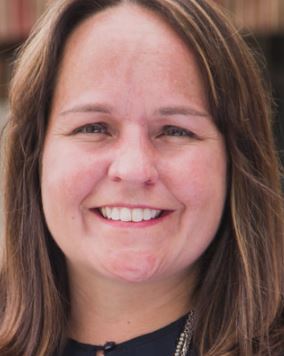DENVER — The Secretary of State’s office has handed down a split decision concerning two campaign finance complaints; one against a pair of Democrat lawmakers and another against organizations supporting progressive causes..

A complaint against state senators Faith Winter from Adams County and Tammy Story from Jefferson County has been dismissed, while one against progressive organizations Colorado Rising and ProgressNow Colorado was ruled it would move into the initial investigation phase.
That complaint was filed by Charles Heatherly, former policy director for the State Senate Republicans, and claims the two organizations conspired to act as a conduit to fund proponents of Proposition 112 in the 2018 election on behalf of the Sergey Brin Foundation. Brin is the co-founder of Google.

The complaint also asks that newly sworn in Secretary of State, Democrat Jena Griswold, who ran her campaign on ridding Colorado elections of dark money, recuse herself and her office from the investigation.
“The elections division finds that complainant alleged potential violations of Colorado finance law and allege sufficient facts to support a legal and factual basis for the complaint,” the ruling reads.
The elections division now has 30 days to conduct an initial review to determine whether to file a complaint with a hearing officer.
Former Colorado Secretary of State Scott Gessler, the attorney who filed the complaint on behalf of Heatherly, said in a news release that this is just the start of a formal investigation,

“We’ll be watching to ensure that this process is thorough, professional and transparent,” Gessler said. “We gave investigators a very good road map and money trail to follow, so they’ll have no excuses if they drop the ball or duck for political cover as the probe unfolds. This would have been a tough one for the new Secretary of State to ignore, given her vocal opposition to ‘dark money’ in Colorado politics, but these allegations involve her political allies, so the process will have to be carefully watched going forward.”
However, the complaint against Winter and Story, which was filed by Matt Arnold, director of Campaign Integrity Watchdog, was dismissed following its 30-day review. It alleged the campaigns accepted out of state money from the Sister District Project (SDP), which acted as a conduit for donors in violation of the Colorado Constitution.
Arnold filed his complaint while former Secretary of State Wayne Williams was still in office. Williams agreed to move the complaint forward and investigate the charges. However, that timeline fell on Griswold.
Arnold said he was not surprised by the actions and intends to move forward with an appeal, adding changes to the process under Williams are part of the problem and that the “weaponization of the campaign finance complaint process has been delivered into the hands of a very partisan Democrat Secretary of State, and a very partisan Attorney General.”
The new rules for complaints have “basically allowed a single partisan elected official to provide cover for all sorts of shenanigans having to do with funneling vast amounts of money to influence Colorado elections.”

Arnold takes issue in part with an unsolicited letter that was sent from the organizations involved to the Secretary of State’s office saying they did nothing wrong and simply acted as a payment processor.
However, Arnold said what the two organizations did was much different than a standard payment processor such as Act Blue, a popular processing service among political candidates.
In the case of Act Blue, contributors access a payment button through a website or other means connected specifically to a single issue or candidate. They enter their credit card information and Act Blue pays the candidate or issues committee what was donated minus a small processing charge.
In the case of the Sister District Project, however, donors went to its website, where they were asked to donate to “implement (SDP’s) political strategy by selecting a portfolio of races comprised of three categories.”
Those categories include “blue flip” states, which SDP believes can be flipped to Democrats; “blue hold” states, which SDP identifies as chambers currently held by Democrats but only by a small margin; and “blue inroads” states, which SDP doesn’t believe can be flipped but wants to focus on gaining more Democrat seats.
Each category identifies specific races, and the Colorado Senate was identified by the group as a “blue flip state,” and SDP chose to send money to Story and Winter based on that. Donors did not pick Story and Winter on their own, Arnold said.
SDP website says in part: “Once we have assessed the candidate(s), the filing deadlines and/or contested primaries have passed, and we have found a good match for a Sister Race among our Sister District team(s), we can announce our official support in particular districts.”
The donations, which were given in identical amounts on identical days, amounted to tens of thousands of dollars from more than 600 donors in amounts ranging from $1.01 to $400. Arnold said SDP was not collecting a separate contribution to the candidate. Donors were making a donation to the democracy group and then they were making a decision on how much to apply to candidates.”
“That is bundling,” Arnold said. “And that is not allowed because it is acting as a conduit, particularly when you are talking about making simultaneously donations to two different candidates. They did more than processing. There was a thought process. They were making a calculation as to how to proportion the funds between candidates.”
Arnold said what they did was not by accident that it was coordinated, and it breaks Colorado’s campaign finance laws.
Arnold said he believes the Heatherly complaint — that he called a very valid complaint — will have the same fate once the initial 30-day investigation is up.
“They’ll come back and say, ‘oh no, there is nothing there, we talked to Progress Now and Colorado Rising and they assure us things are hunky dory and that’s good enough for us, so no complaint. That’s the problem with the process.”
Arnold has about 30 days to raise the money to appeal the decision to the Colorado Court of Appeals, a process that once filed could take a year to get in front of a judge.


